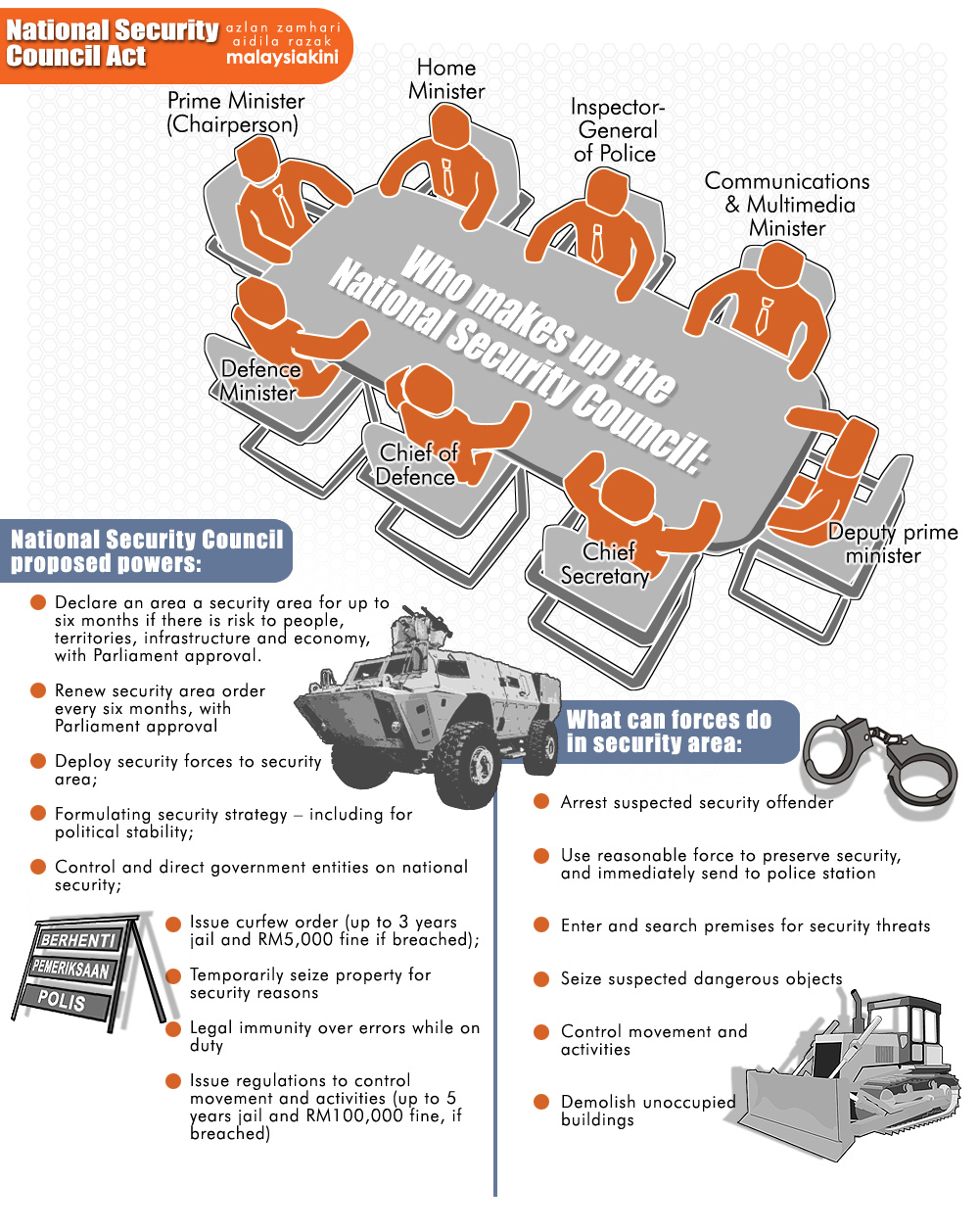The National Security Council Act has more sweeping powers than the now-repealed Internal Security Act and should be immediately repealed, international NGO Human Rights Watch says.
The NSC Act came into force yesterday, after it was gazetted into law without royal assent. The Council of Rulers had last year sought for the law to be refined.
Human Rights Watch said the "broad and vaguely worded" legislation gives sweeping powers to Prime Minister Najib Abdul Razak.
This includes declaring the country a "security area" to protect "any interest of Malaysia" that could allow the authorities to limit movement and arrest, search and seize without warrant for an unlimited period.
This is more sweeping than the ISA, which allowed the declaration of a security area only if necessary to "suppress organised violence" against people or property by "a substantial body of persons", it said.
The law also does away with the need for inquests on deaths of those killed in a security area "as a result of operations undertaken by the security forces for the purpose of enforcing any written laws".
The ISA also allowed the head of the Council of Rulers to decide if a security area is to be declared, while the NSC Act gives this power solely to the prime minister.
“Given the Malaysian government’s recent track record of harassing and arresting government critics, the likely abuses under this new law are truly frightening,” said Phil Robertson, deputy Asia director at Human Rights Watch.
“There are serious concerns that this law will be used as a backdoor to severe rights violations, using government claims that it only seeks to protect its citizens from terror threats,” Robertson said in a statement.
The government has defended the NSC Act as necessary, given rising threats of terrorism.
'Act goes beyond definitions of terrorism'
However, Robertson said the provisions under the NSC Act go beyond definitions of terrorism adopted by the United Nations Security Council.
The UN defines terrorism as an act committed with intent to kill, cause serious bodily harm and take hostage to terrorise a population or compel a government or an international organisation.
"The new law, by contrast, does not even require a threat or likelihood of violence before a security zone can be declared," Robertson said.
As such, he said, the NSC Act does not meet international standards.
“This law places enormous power in the hands of a government that has already shown a willingness to use rights-abusing laws to go after its opponents and suppress dissent,” he said.
“This law will perpetuate just the sort of abuses that Prime Minister Najib claims he intended to end.”
The Malaysian government should revise its laws to incorporate international human rights standards into the effort to counter terrorism, Robertson added.


